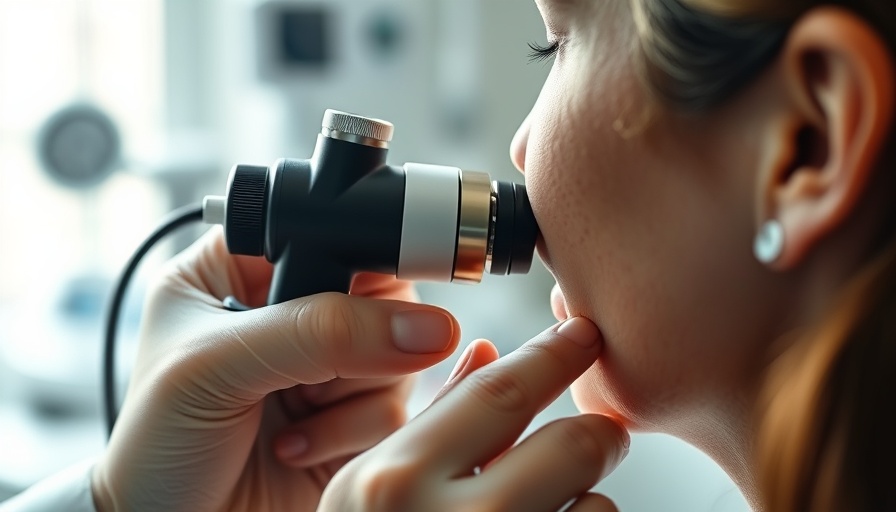
Understanding the Rise of Menopausal Acne: Why Hormonal Balance Matters
As women transition into menopause, changes in hormonal balance often lead to skin challenges, notably acne. This condition, previously thought to primarily affect teenagers, is making a resurgence among middle-aged women. Effective treatment must now consider the way hormonal fluctuations impact skin sensitivity and emotional health. By incorporating holistic approaches alongside topical solutions, dermatologists can tailor treatments that support both physical appearance and psychological well-being.
Innovative Approaches in Eczema Treatment: Microbiome-Friendly Solutions
In an exciting development for those with eczema, Codex Labs has launched a lotion that is the first over-the-counter treatment recognized for being microbiome-friendly. The endorsement from the National Eczema Association is particularly significant, highlighting a growing trend in skincare where maintaining the skin's microbiome is paramount. Understanding how formulations affect the microbial balance can pave the way for more effective eczema treatments in the future.
The Choices Behind Psoriasis Treatment: Subcutaneous vs. Oral Methotrexate
The debate over treatment methods for psoriasis continues, with recent studies indicating that subcutaneous methotrexate can lead to improved efficacy and patient adherence compared to oral alternatives. While the cost may be higher, the enhanced results could justify this investment for many patients. Selecting the right delivery method is crucial in managing chronic conditions like psoriasis and reflects the evolving landscape of dermatological care.
Off-Label Insights: Expanding the Reach of Ruxolitinib Cream
Ruxolitinib cream, already pivotal in treating both vitiligo and atopic dermatitis, is now being explored for additional inflammatory skin diseases. The off-label applications of such treatments indicate a broader understanding of inflammatory responses in skin health. As research progresses, the potential for existing medications to address multiple skin disorders could revolutionize dermatological treatments.
Acupuncture and Its Surprising Impact on Aesthetic Treatments
Recent clinical trials reveal that acupuncture not only alleviates pain but can effectively reduce frown lines without the need for more invasive procedures. With participants reporting sustained satisfaction 12 weeks post-treatment, acupuncture emerges as a powerful alternative in aesthetic dermatology. This ancient practice's re-emergence in modern skincare underlines the importance of integrating traditional methods into contemporary care practices.
Looking Ahead: Trends and Innovations in Dermatology
As the landscape of dermatology evolves, emerging therapies and treatments signify a shift in how skin conditions are approached. The focus on integrating holistic methods alongside traditional practices, mindfulness toward the microbiome, and innovations like subcutaneous delivery reflect a comprehensive understanding of skin health. The future of dermatology not only lies in addressing the symptoms but also in recognizing the nuances of patient experiences and physical health.
Final Thoughts: Empowering Patients Through Knowledge and Innovation
Staying informed in the rapidly changing field of dermatology is essential for both practitioners and patients alike. With innovative treatments becoming available, awareness regarding the implications of hormonal shifts, effective eczema treatments, and the promising advances in psoriasis management ensures better patient outcomes. As these narratives unfold, embracing evidence-based practices alongside emotional well-being will empower personal care choices.
For those navigating the myriad of skincare options available today, understanding these emerging trends and innovations can significantly enhance your personal skincare journey. By adopting a proactive approach, patients can better advocate for their own health and well-being.
 Add Row
Add Row  Add
Add 






Write A Comment